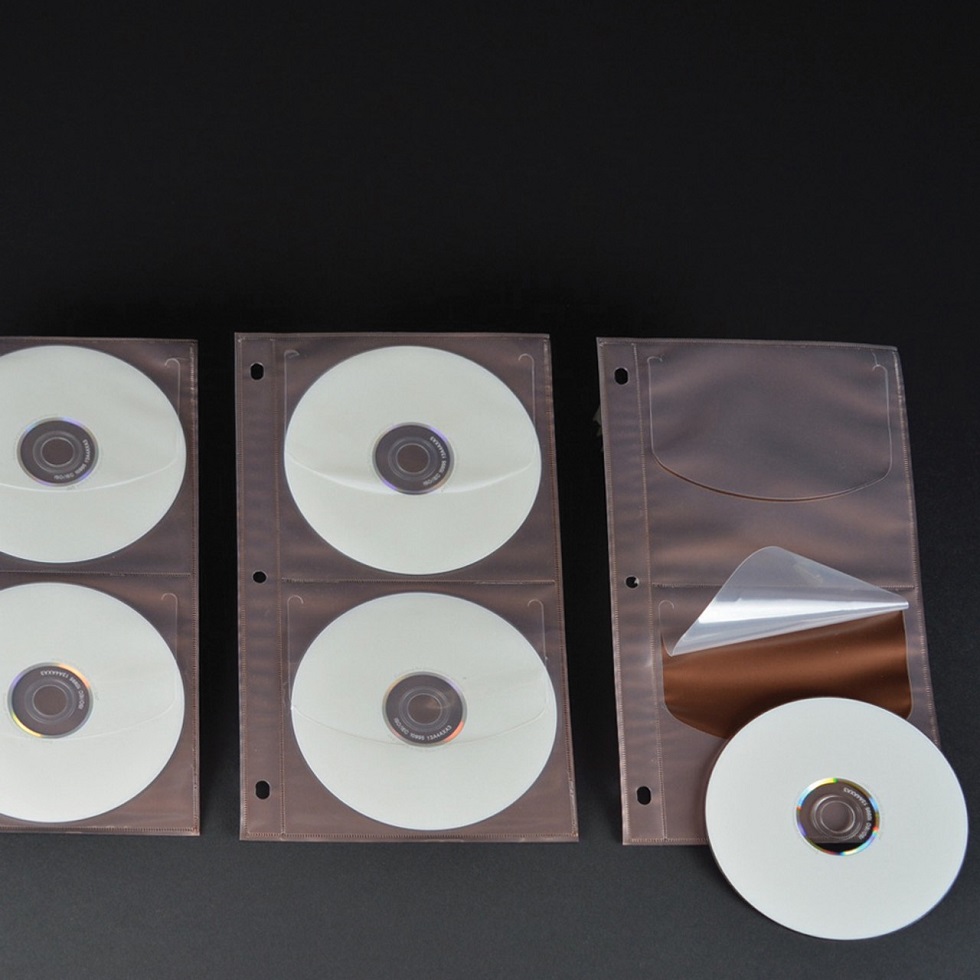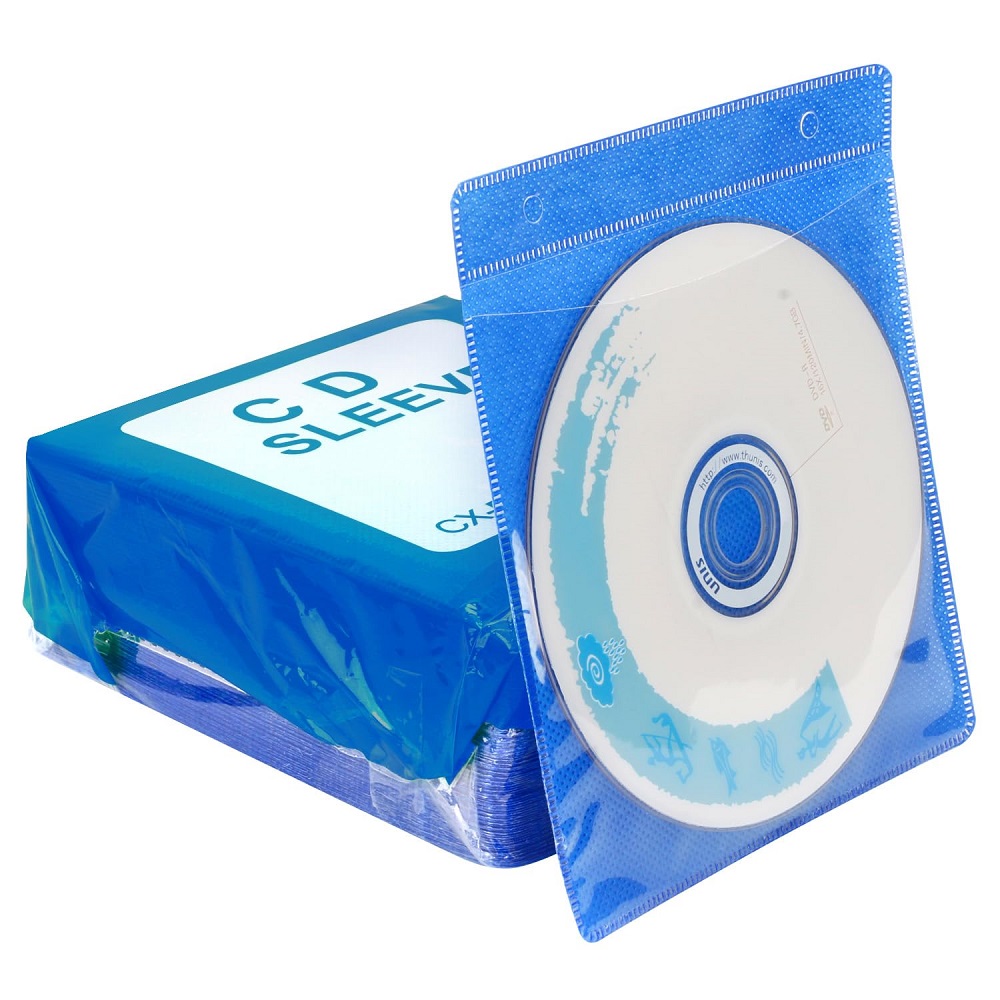Introduction to CD and DVD
Compact Discs (CDs) and Digital Versatile Discs (DVDs) are both optical storage mediums. They have been pivotal in how we store and access digital data. Many people use these terms interchangeably, but they serve different purposes and offer different capabilities.

A CD was primarily designed for audio storage. Soon after, it became a popular medium for data storage, holding up to 700 MB of information. On the other hand, DVDs entered the scene to revolutionize video storage. DVDs can hold about 4.7 GB to 8.5 GB of data. This capacity makes them ideal for movies and software.
As technology evolved, both CDs and DVDs adapted to meet different demands. It is crucial to understand their distinctions and uses to make informed choices when purchasing or using these discs.
Technical Specifications: A Deeper Look
The Structure of CDs
Compact Discs are made from polycarbonate plastic. They work using a reflective layer, which is usually aluminum. CDs are read by a laser that scans the disc’s surface. The data is encoded in tiny pits and lands on the disc. The laser reads this information by detecting changes in reflection.
The speed of data retrieval is essential for audio playback. A standard CD spins at about 200 to 500 RPM. This high speed allows for smooth audio streaming. In addition, it enables the reading of data in real-time. CDs are primarily used for music, but they can also store other kinds of data.
The Structure of DVDs
Digital Versatile Discs have a similar physical construction, but they differ in several key aspects. Like CDs, DVDs are made from polycarbonate plastic. However, DVDs utilize dual-layer technology. This feature allows for much greater data capacity. A single-layer DVD can hold 4.7 GB, while a dual-layer can manage 8.5 GB.
The laser used to read DVDs is different. It operates at a shorter wavelength than that of CDs. This shorter wavelength enables the laser to read the finer pits on the DVD’s surface, allowing for more data to be stored. Additionally, DVDs often feature a protective layer that helps guard against scratches and damage.
Data Retrieval and Speed
When it comes to data retrieval speeds, DVDs generally outperform CDs, especially in video playback. DVDs can stream video smoothly without noticeable lag. The structure of DVDs allows for faster access to data blocks. This efficiency is one reason DVDs are commonly used for movies and complex software applications.
Furthermore, the buffering capabilities of DVDs contribute to their effectiveness in video playback. Users can enjoy uninterrupted streams. Meanwhile, CDs might struggle with larger video files due to their limited storage capacity.
Usage Scenarios: When to Use Which
Music and Audio: The CD Advantage
Compact Discs were created for audio purposes initially. They have stood the test of time as a popular medium for music. Many music lovers prefer CDs for several reasons. First, the audio quality on CDs is often superior. They offer uncompressed audio, making them a favorite among audiophiles.
Another reason is durability. CDs can withstand scratches better than some digital music files, which can easily be corrupted. Additionally, CDs don’t require a digital device for listening. You can play a CD using a standard CD player, which makes it accessible.
People also appreciate the tactile experience of owning a CD. The album art, the booklet, and the physical disc create a more personal connection. Collecting CDs can be a rewarding hobby for many.
Movies and Videos: The DVD Dominance
When it comes to movies, DVDs have taken the lead. Their larger storage capacity makes them suitable for full-length films. Most DVDs can hold a movie with high-quality audio and video. Moreover, many DVDs come with bonus content, such as director’s commentary and behind-the-scenes footage.
The video quality of DVDs is excellent compared to VHS tapes. They have better resolution and sound quality. This improvement means that viewers can have a more immersive experience. Additionally, DVDs can be played on various devices, including DVD players, laptops, and gaming consoles.
Security is also a factor in the choice between CDs and DVDs. With the rise of digital piracy, DVDs often come with encryption technology. This encryption helps protect the content from unauthorized copying. As a result, consumers have the assurance that they are watching legitimate copies.
File Types and Formats
Audio Formats on CDs
Compact Discs store data in the form of Red Book audio. This format is uncompressed and maintains high quality, making it ideal for music播放. The sound fidelity remains intact, ensuring a rich listening experience. Additionally, users can create custom playlists using CD burning software.
In contrast, various audio formats are available for digital files, such as MP3 and AAC. While these file types are convenient, they often sacrifice audio quality for smaller file sizes. Therefore, hardcore music enthusiasts often opt for CDs to get that rich, full sound.
The ease of creating mixed CDs also appeals to many. Users can curate their favorite tracks and share them with friends. This feature makes CDs versatile, allowing people to personalize their music experience.
Video Formats on DVDs
Digital Versatile Discs typically use MPEG-2 video format for movies. It is optimized for video playback and works well with the capabilities of standard DVD players. This format provides high-quality images and efficient compression.
Moreover, DVDs can include multiple audio tracks and subtitle options. This versatility allows users to choose their preferred language and enjoy the best experience. Some DVDs also offer interactive menus, making it easy for viewers to navigate the content.
On the other hand, streaming services have changed how we consume movies. Digital downloads often use formats suited for online playback, such as MP4. These formats can be played easily on mobile devices and laptops. However, the quality may not always rival that of dedicated DVDs, particularly with compression artifacts.
Storage Capabilities and Longevity
CD Storage Capacity
A standard Compact Disc can hold about 700 MB of data. In practical terms, this means a standard CD can store around 80 minutes of high-quality audio. When it comes to data storage, this capacity is limited. For example, it would take multiple CDs to store a single movie. This limitation may not work for those who want to store large files or collections.
The longevity of CDs is another factor to consider. If stored correctly, CDs can last for many years. They resist wear and tear better than older magnetic media types. However, exposure to heat, direct sunlight, or humidity can degrade their quality. Therefore, it’s essential to store them in a cool and dry place.
DVD Storage Capacity
Digital Versatile Discs shine in this category. A single-layer DVD can hold about 4.7 GB of data, while a dual-layer DVD can manage up to 8.5 GB. This capacity makes DVDs a better choice for movies, software, and games. With more storage space, users can fit an entire film along with extra content on one disc.
Regarding longevity, DVDs also fare well. With proper storage, they can last for years. The additional protective layer on DVDs aids in reducing the likelihood of scratches. However, they should also be kept away from extreme conditions to maintain quality.
Cost and Availability
CD Pricing
When it comes to pricing, CDs tend to be more affordable. You can find a range of prices, from budget options to deluxe editions. This affordability makes it easy for music fans to start a collection without breaking the bank. Many music artists still release CDs as a primary means of distribution. Used CDs are also readily available at lower prices, allowing collectors to hunt for rare finds.
However, the mass shift toward digital music has affected CD sales. Many people prefer streaming services over purchasing physical copies. This decline in demand may lower CD availability in retail stores.
DVD Pricing
DVDs generally cost more than CDs. Their higher price reflects their larger storage capacity and enhanced features. This difference can be particularly noticeable when purchasing box sets or special editions, which come with additional content and collectibles. However, prices have decreased as DVDs have matured in the market.
People can often find promotional deals for DVD titles. Many online stores offer discounts, making it more affordable to build a movie collection. Just like CDs, DVDs can also be found at lower prices in used condition, making them accessible to budget-conscious consumers.
Future of Optical Discs
The Decline of CDs
As technology continues to advance, the future of Compact Discs appears uncertain. Digital downloads and streaming are taking precedence. Many people prefer access to vast music libraries without physical media. As a result, CD sales have seen a significant decline in recent years.
However, some niche markets still find value in CDs. Audiophiles treasure the superior sound quality, while collectors love the physical format. For enthusiasts, the tactile experience of owning a CD remains unmatched.
While the mainstream market may shift away from CDs, they will likely continue to exist for those who appreciate their unique qualities. Companies may release limited editions or special compilations to meet this demand.
The Future of DVDs
The future of Digital Versatile Discs is also up in the air. Like CDs, the rise of streaming services is affecting DVD sales. More people choose to watch movies online, leading to decreased physical media purchases. However, DVDs still hold a place for serious film lovers and collectors.
Special features found on DVDs, such as behind-the-scenes content and director’s commentary, are not always available in streaming formats. This element keeps DVDs relevant for those who wish to have enhanced movie experiences.
Moreover, special edition DVDs continue to appeal to collectors, with unique packaging and additional content. The market for these types of DVDs may continue to thrive, albeit as a niche.
Conclusion: Which One is Right for You?
In summary, both Compact Discs and Digital Versatile Discs have their advantages and disadvantages. If you value high-quality audio and enjoy music collections, CDs might be the way to go. They offer excellent sound fidelity and are still cherished by many audiophiles.
On the other hand, if you love watching movies and require more storage capacity, DVDs are the better option. With their enhanced features and larger data capacity, DVDs excel in video storage.
As technology continues to evolve, the relevance of both formats may decline. However, for those who appreciate physical media, both CDs and DVDs offer unique experiences. Your choice will depend on your interests and how you engage with digital content today.




